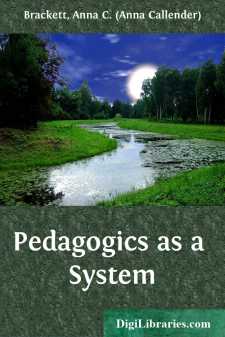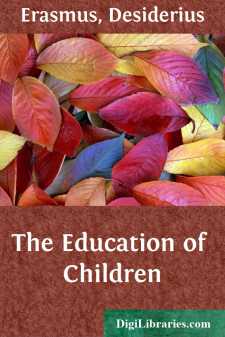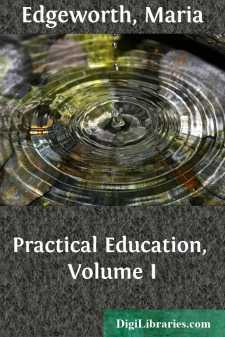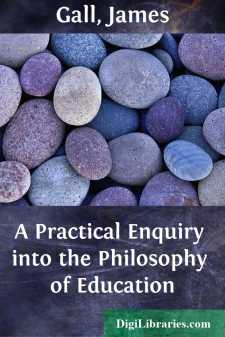Education
- General
- Preschool & Kindergarten 1
- Study Skills 3
- Teaching Methods & Materials 10
General Books
Sort by:
by:
John Dewey
The Child and the Curriculum Profound differences in theory are never gratuitous or invented. They grow out of conflicting elements in a genuine problem—a problem which is genuine just because the elements, taken as they stand, are conflicting. Any significant problem involves conditions that for the moment contradict each other. Solution comes only by getting away from the meaning of terms that is...
more...
INTRODUCTION. § 1. The science of Pedagogics cannot be derived from a simple principle with such exactness as Logic and Ethics. It is rather a mixed science which has its presuppositions in many others. In this respect it resembles Medicine, with which it has this also in common, that it must make a distinction between a sound and an unhealthy system of education, and must devise means to prevent or...
more...
f thou wilt harken vnto me, or rather to Chrisippus, the sharpeste witted of Philosophers, y shalte prouide y thyne infante and yonge babe be forthewyth instructed in good learnyng, whylest hys wyt is yet voyde from tares and vices, whilest his age is tender and tractable, and his mind flexible and ready to folowe euery thyng, and also wyl kepe fast good lessons and preceptes. For we remẽber...
more...
HOW THE CHILD DEVELOPSCondition at Birth Let us see, then, exactly what his condition is. In the first place, he is, as Virchow, an authority on physiological subjects declares, merely a spinal animal. Some of the higher brain centers do not yet exist at all, while others are in too incomplete a state for service. The various sensations which the baby experiences—heat, light, contact, motion,...
more...
FLOURISHING MEDIOCRITY Humanity is rapidly becoming less the outcome of a natural process of development, and more and more the product of an organized educational plan. The average educated man possesses no real individuality. He is simply a manufactured article bearing the stamp of the maker. Year by year this fact is becoming more emphasized. During the past century almost every civilized country...
more...
by:
Maria Edgeworth
PREFACE. We shall not imitate the invidious example of some authors, who think it necessary to destroy the edifices of others, in order to clear the way for their own. We have no peculiar system to support, and, consequently, we have no temptation to attack the theories of others; and we have chosen the title of Practical Education, to point out that we rely entirely upon practice and experience. To...
more...
by:
James Gall
CHAP. I. Education is at present obviously in a transition state. The public mind has of late become alive to the importance of the subject; and all persons are beginning to feel awake to the truth, that something is yet wanting to insure efficiency and permanence to the labours of the teacher. The public will not be satisfied till some decided change has taken place; and many are endeavouring to grope...
more...
CHAPTER I INTRODUCTION—THE PRESENT UNREST IN EDUCATION The problems as to the end or ends at which our educational agencies should aim in the training and instruction of the children of the nation, and of the right methods of attaining these ends once they have been definitely and clearly recognised, are at the present day receiving greater and greater attention not only from professed...
more...
by:
Maria Edgeworth
ON GRAMMAR, AND CLASSICAL LITERATURE. As long as gentlemen feel a deficiency in their own education, when they have not a competent knowledge of the learned languages, so long must a parent be anxious, that his son should not be exposed to the mortification of appearing inferiour to others of his own rank. It is in vain to urge, that language is only the key to science; that the names of things are not...
more...
INTRODUCTION The four essays on education which Herbert Spencer published in a single volume in 1861 were all written and separately published between 1854 and 1859. Their tone was aggressive and their proposals revolutionary; although all the doctrines—with one important exception—had already been vigorously preached by earlier writers on education, as Spencer himself was at pains to point out....
more...











